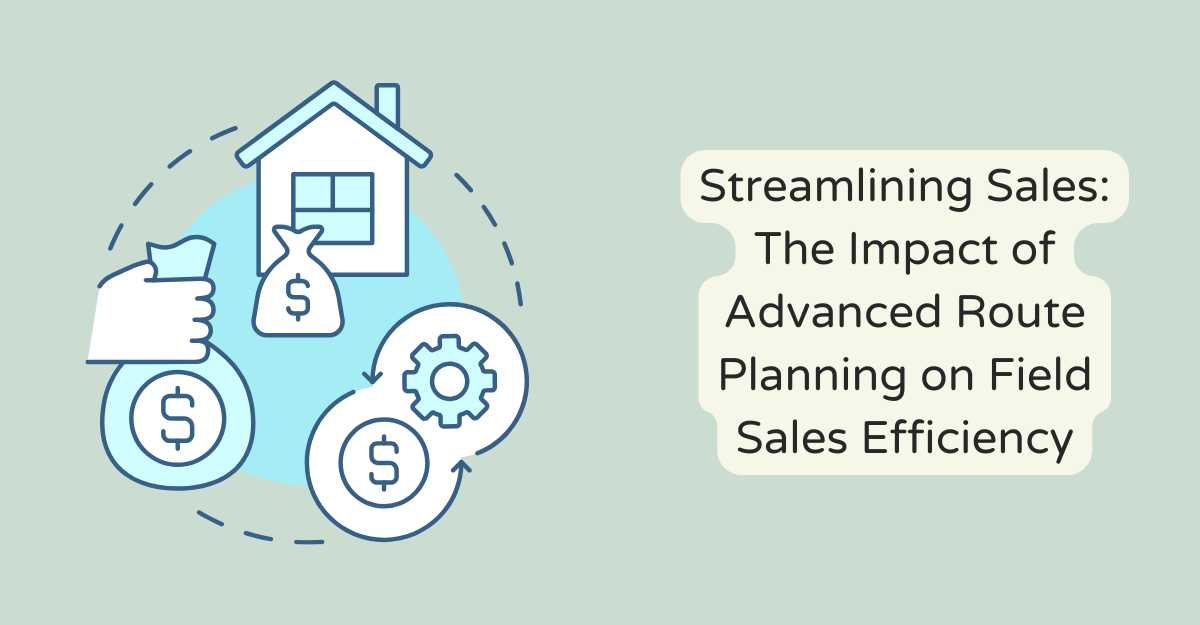
For sales professionals who are always on the move, strategic route planning could mean the difference between a closed deal and a wasted day. With the ability to plan more efficiently, sales representatives spend less time driving and more time engaging with clients, forging more robust relationships and closing more sales. This upward shift is revolutionizing sales strategies industry-wide.
The Impact of Route Planning on Field Sales Operations
The field sales landscape is demanding, with sales professionals often required to navigate a maze of appointments, traffic conditions, and customer needs. The advent of digitized sales route mapping tools has entirely transformed how sales teams coordinate their field operations. Route planning has moved from rudimentary map-based planning to sophisticated digital synchronization of schedules and customer data.
The advantages of this evolution are multifaceted, providing not just a reduction in miles traveled but also an overarching enhancement of the sales lifecycle. To optimize these multifaceted routes effectively, modern sales forces leverage analytical insights and cutting-edge software designed to streamline their daily operations.
Realizing Efficiencies through Optimized Routing Strategies
Optimizing sales routes is more complex than finding the shortest path; it’s about maximizing time spent with clients and prospects. By strategically planning their journeys, sales reps can reduce mileage, trim fuel costs, and ensure punctual arrivals.
This efficiency level has ripple effects, leading to decreased operational expenses and an enhanced focus on the human aspect of sales building relationships. Moreover, a balanced schedule contributes to a healthier work-life integration for sales professionals, enabling them to return home with energy reserves for their personal lives.
Key Takeaways:
- Advanced route planning optimizes field sales, saving time and reducing costs.
- Integrating customer data and real-time updates significantly enhances productivity.
- Emerging technologies such as AI and predictive analytics are revolutionizing route planning.
Advanced Features of Modern Route Planning
Today, a practical sales route planner transcends traditional GPS navigation. It embodies a suite of features that afford sales teams the agility to respond in real time to changes—be it traffic, weather, or last-minute client requests.
A powerful route planner accommodates multi-stop itineraries, integrates customer databases for personalized visits, and delivers mobile alerts to keep sales reps on course. The optimization algorithms at play calculate routes that sidestep traffic snarls, shaving off precious minutes or hours over a week’s schedule.
Leveraging Analytics in Sales Route Planning
Data analysis forms the backbone of any strategic sales activity, and route planning is no exception. The ability to absorb and interpret route data allows sales managers to identify patterns, optimize territories, and direct resources where they are most effective.
In-depth reporting functionalities not only track the performance of sales representatives but also provide actionable insights to refine traveling efficiencies continuously. For instance, as noted by Business Insider, GIS technology allows businesses to assess spatial data related to market trends, contributing to informed planning decisions.
Adaptability in the Face of Challenges
The best-laid plans often go awry, especially in field sales, where unpredictability is a constant. Advanced planning systems should have built-in flexibility for sales reps to adjust and re-optimize their routes on the fly—whether adding a promising new lead into the day’s calls or pivoting due to a canceled meeting. Reactive adaptations are essential for maintaining productivity and ensuring maximum sales territory coverage.
Transformation of Field Sales with Route Planning Software
The correct route planning software does more than suggest the quickest route; it becomes an integrative part of the sales ecosystem. Utilizing AI and machine learning, modern route planners forecast traffic patterns, offer optimal visit times, and even recommend the most suitable leads to visit based on propensity models. This level of intelligent guidance is becoming an indispensable tool for global sales reps.
Predicting the Advancements in Sales Route Planning
Looking ahead, sales route planning is edging toward comprehensive systems that plot points on a map and anticipate needs based on past behaviors and predictive analytics. This predictive approach, fed by an ever-increasing data flow, promises to arm sales professionals with recommendations before they begin their day. Articles like the one in The Wall Street Journal detail how integration with CRM systems can centralize insights, fostering a more informed and prepared sales force.
How to Select the Ideal Route Planning Solution
There’s no one-size-fits-all when it comes to sales route planning solutions. Individual sales operations come with unique sets of challenges and requirements.
A thorough evaluation should include feature-richness, user-friendliness, mobility, and integration ability. A solution that shines in one environment might falter in another; therefore, compatibility with the existing tech stack and workflows is paramount.
Maximizing Outcomes with Effective Training and Support
Implementing any new tool is as good as the accompanying training and support. Ensuring that the sales team is proficient in utilizing the advanced features of their route planning software plays a critical role in the overall success of its deployment.
Continuous learning opportunities and readily available support can significantly smooth the transition and maintain a high level of operational performance.
Concluding Thoughts on Enhanced Sales Efficiency
The integration of sophisticated route planning strategies within the sales domain is a testament to the necessity of efficiency in this competitive field. With improvements in time management, cost reduction, and customer satisfaction, it’s clear that advanced route planning tools have marked their firm position as a cornerstone of a successful sales strategy.